Judge denies former sheriff’s request for new trial
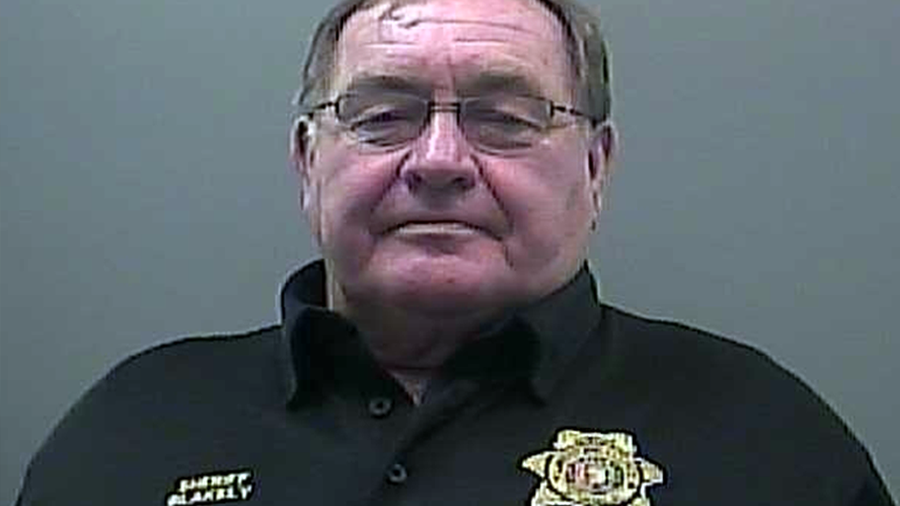
Judge Pamela Baschab has denied a request for a new trial from former Limestone County sheriff Mike Blakely, reported Al.com. Baschab is retired and was specially appointed to the case. She sentenced Blakely to three years in jail on August 20. Blakely, the state’s longest-serving sheriff, was found guilty last month of theft and using his position for personal gain. He stole $4,000 from his own campaign account and used his position to steal $29,000 from a safe that held cash belonging to county jail inmates. After his conviction, Blakely was removed as Limestone County Sheriff. Blakey’s attorneys argued in August that there was not sufficient evidence for the conviction. They stated that the judge made “erroneous rulings that violated his constitutional rights.” Attorneys argued that the judge violated Blakely’s constitutional right to a public trial because she closed the courtroom to press and spectators. Additionally, they argued that the judge should have held a hearing or granted Blakely’s request for a mistrial when juror Sue Pentecost came forward to say that she did not believe he was guilty despite voting to convict. Pentecost stated in a signed affidavit, “I was never convinced that Michael Blakely was guilty of any count. I’m still not convinced he’s guilty of anything.” State prosecutors opposed Blakely’s request for a new trial, stating, “This Court should reject Blakely’s motion because his trial was fair and impartial, none of the conclusory claims that his motion raised merit relief, and the weight of the evidence proved that he was guilty beyond a reasonable doubt.” Blakely’s attorneys argue that under Alabama sentencing guidelines, Blakely should have been sentenced to probation, not jail time. Blakely is currently out of jail on $50,000 bail.
FBI releases newly declassified record on September 11 attacks
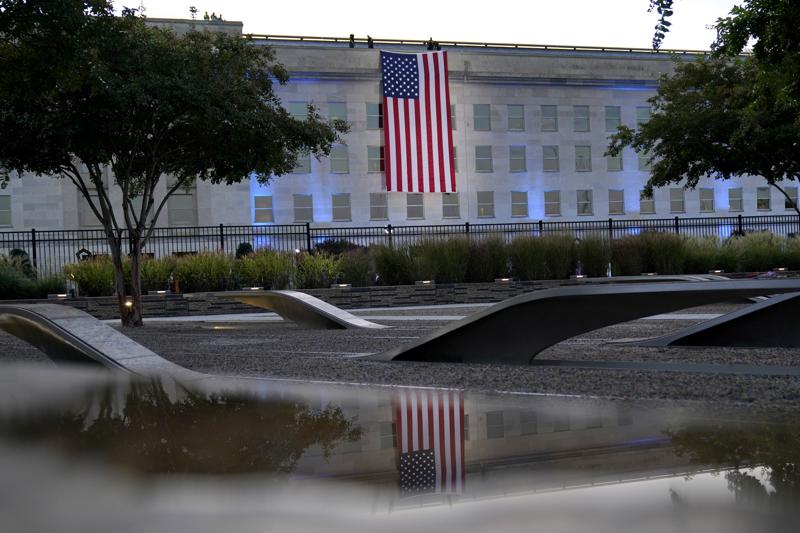
A declassified FBI document related to logistical support given to two of the Saudi hijackers in the run-up to the Sept. 11 attacks details contacts the men had with Saudi associates in the United States but does not provide proof that senior kingdom officials were complicit in the plot. The document released Saturday, on the 20th anniversary of the attacks, is the first investigative record to be disclosed since President Joe Biden ordered a declassification review of materials that for years have remained out of public view. The 16-page document is a summary of an FBI interview done in 2015 with a man who had frequent contact with Saudi nationals in the U.S. who supported the first hijackers to arrive in the country before the attacks. Biden ordered the Justice Department and other agencies to conduct a declassification review and release what documents they can over the next six months. He was under pressure from victims’ families, who have long sought the records as they pursue a lawsuit in New York alleging that Saudi government officials supported the hijackers. The heavily blacked-out document was released hours after Biden attended Sept. 11 memorial events in New York, Pennsylvania, and at the Pentagon. Victims’ relatives had said they would object to Biden’s presence at those remembrances as long as the documents remained classified. The Saudi government has long denied any involvement in the attacks. The Saudi Embassy in Washington has supported the full declassification of all records as a way to “end the baseless allegations against the Kingdom once and for all.” The embassy said that any allegation that Saudi Arabia was complicit was “categorically false.” The documents have come out at a politically delicate time for the U.S. and Saudi Arabia, which have forged a strategic, if difficult, alliance, particularly on counterterrorism matters. The Biden administration in February released an intelligence assessment implicating Crown Prince Mohammed bin Salman in the 2018 killing of U.S.-based journalist Jamal Khashoggi but drew criticism from Democrats for avoiding a direct punishment of the royal himself. Victims’ relatives said the document’s release was a significant step in their effort to connect the attacks to Saudi Arabia. Brett Eagleson, whose father, Bruce, was killed in the World Trade Center attack, said the release of the FBI material “accelerates our pursuit of truth and justice.” Jim Kreindler, a lawyer for the victims’ relatives, said in a statement that “the findings and conclusions in this FBI investigation validate the arguments we have made in the litigation regarding the Saudi government’s responsibility for the 9/11 attacks. “This document, together with the public evidence gathered to date, provides a blueprint for how (al-Qaida) operated inside the US with the active, knowing support of the Saudi government,” he said. That includes, he said, Saudi officials exchanging phone calls among themselves and al-Qaida operatives and then having “accidental meetings” with the hijackers while providing them with assistance to get settled and find flight schools. Regarding Sept. 11, there has been speculation of official involvement since shortly after the attacks, when it was revealed that 15 of the 19 attackers were Saudis. Osama bin Laden, the leader of al-Qaida at the time, was from a prominent family in the kingdom. The U.S. investigated some Saudi diplomats and others with Saudi government ties who knew hijackers after they arrived in the U.S., according to previously declassified documents. Still, the 9/11 Commission report in 2004 found “no evidence that the Saudi government as an institution or senior Saudi officials individually funded” the attacks that al-Qaida masterminded, though it noted Saudi-linked charities could have diverted money to the group. Particular scrutiny has centered on the first two hijackers to arrive in the U.S., Nawaf al-Hazmi and Khalid al-Mihdhar, and the support they received. In February 2000, shortly after their arrival in Southern California, they encountered at a halal restaurant a Saudi national named Omar al-Bayoumi who helped them find and lease an apartment in San Diego. He had ties to the Saudi government and had earlier attracted FBI scrutiny. Bayoumi has described his restaurant meeting with Hazmi and Mihdhar as a “chance encounter,” and the FBI, during its interview, made multiple attempts to ascertain if that characterization was accurate or if the meeting had actually been arranged in advance, according to the document. The 2015 interview that forms the basis of the FBI document was of a man who was applying for U.S. citizenship and who years earlier had repeated contacts with Saudi nationals, who investigators said, provided “significant logistical support” to several of the hijackers. Among the man’s contacts was Bayoumi, according to the document. The man’s identity is blacked out throughout the document, but he is described as having worked at the Saudi consulate in Los Angeles. Also referenced in the document is Fahad al-Thumairy, at the time an accredited diplomat at the Saudi Consulate in Los Angeles who investigators say led an extremist faction at his mosque. The document says communications analysis identified a seven-minute phone call in 1999 from Thumairy’s phone to the Saudi Arabian family home phone of two brothers who later were detained at the Guantanamo Bay, Cuba, prison. Republished with the permission of the Associated Press.
Joe Manchin favors trimming Joe Biden budget plan by more than half
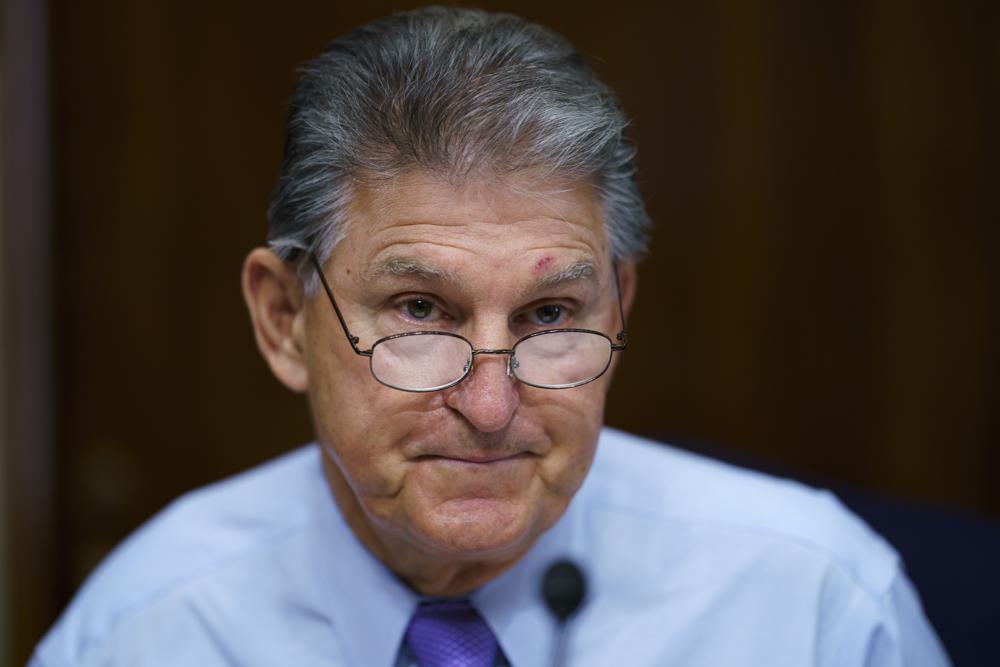
A Democratic senator vital to the fate of President Joe Biden’s $3.5 trillion plan for social and environmental spending said Sunday he won’t support even half that amount or the ambitious timetable envisioned for passing it. The stand by Sen. Joe Manchin, D-W.Va., was described as unacceptable by the chairman of the Senate Budget Committee, who is helping craft the measure. But Democrats have no votes to spare if they want to enact Biden’s massive “Build Back Better” agenda, with the Senate split 50-50 and Vice President Kamala Harris the tiebreaker if there is no Republican support. With congressional committees working toward the target of Wednesday set by party leaders to have the bill drafted, Manchin made clear his view, in a series of television interviews, that there was “no way” Congress would meet the late September goal from House Speaker Nancy Pelosi, D-Calif., for passage. “I cannot support $3.5 trillion,” Manchin said, citing, in particular, his opposition to a proposed increase in the corporate tax rate from 21% to 28% and vast new social spending. “We should be looking at everything, and we’re not. We don’t have the need to rush into this and get it done within one week because there’s some deadline we’re meeting, or someone’s going to fall through the cracks,” he said. Pressed repeatedly about a total he could support, Manchin said, “It’s going to be $1, $1.5 (trillion).” He later suggested the range was based on a modest rise in the corporate tax rate to 25%, a figure he believes will keep the U.S. globally competitive. “The numbers that they’re wanting to pay for and the tax changes they want to make, is that competitive?” Manchin asked. “I believe there’s some changes made that does not keep us competitive.” But Vermont Sen. Bernie Sanders, who is developing the budget bill, noted that he and other members of the liberal flank in Congress had initially urged an even more robust package of $6 trillion. “I don’t think it’s acceptable to the president, to the American people, or to the overwhelming majority of the people in the Democratic caucus,” Sanders said. He added: “I believe we’re going to all sit down and work together and come up with a $3.5 trillion reconciliation bill which deals with the enormously unmet needs of working families.” The current blueprint proposes billions for rebuilding infrastructure, tackling climate change, and expanding or introducing a range of services, from free prekindergarten to dental, vision, and hearing aid care for seniors. Manchin voted last month to approve a budget resolution that set the figure, though he and Sen. Kyrsten Sinema, D-Ariz., have expressed reservations about the topline amount. All of it would be paid for with taxes on corporations and the wealthy. Congressional committees have been working hard this month on slices of the 10-year proposal in a bid to meet this week’s timeline from Pelosi and Senate Majority Leader Chuck Schumer, D-N.Y., to have the bill drafted. Pelosi is seeking a House vote by Oct. 1, near the Sept. 27 target for voting on a slimmer infrastructure plan favored by moderates. Manchin, who in an op-ed earlier this month urged a “strategic pause” on the legislation to reconsider the cost, described the timing as unrealistic. He has urged Congress to act first on a nearly $1 trillion bipartisan infrastructure bill already passed by the Senate. But liberal Democrats have threatened to withhold their support until the $3.5 trillion spending bill is passed alongside it. Neither side on Sunday revealed how they hoped to quickly bridge the divide among Democrats. “There’s no way we can get this done by the 27th if we do our job,” Manchin said. “There’s so much differences that we have here and so much — there’s so much apart from us where we are. … I’m working with people. I’m willing to talk to people. It makes no sense at all.” Manchin spoke on CNN’s “State of the Union,” NBC’s “Meet the Press,” and ABC’s “This Week.” Sanders was on CNN and ABC. Republished with the permission of the Associated Press.
Kenyatte Hassell wins election to fill vacancy in Alabama House
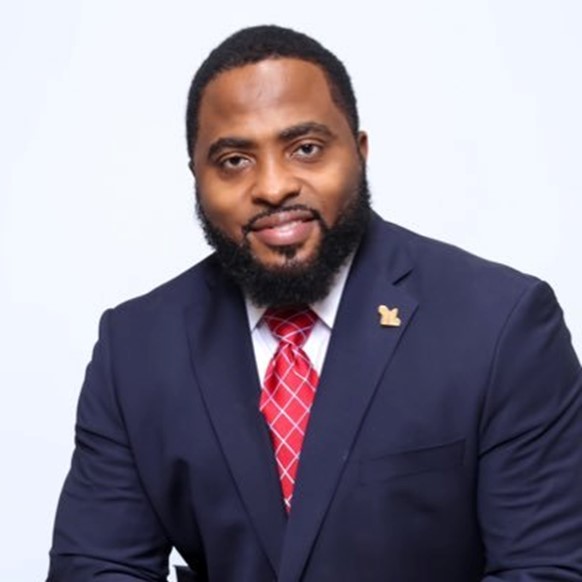
Democrat Kenyatte Hassell is the newest member of Alabama’s House of Representatives. Hassell won the vacant District 78 seat in an election Tuesday, garnering 1,028 votes — or 80.1% — in unofficial returns posted on the Alabama Secretary of State’s website. Hassell’s opponent, Republican Loretta Grant, received 254 votes — or 19.8%, the website said. Turnout for the election was 4.8%. Hassell fills the seat that became vacant earlier this year when then-Rep. Kirk Hatcher, D-Montgomery, won election to the Alabama Senate. He served as a campaign manager and strategist for Hatcher and has consulted with other campaigns. He’s also a member of the Alabama State Democratic Executive Committee. In a speech streamed on his Facebook page, Kenyatte Hassell thanked his family and said he hoped “to help people” in his time in the House, The Montgomery Advertiser reported. During the campaign, Hassell spoke of focusing on economic development and improving local schools. Hassell is a native of Montgomery and has lived in the district, which encompasses north and west Montgomery, his entire life. He will fill the remainder of Hatcher’s term before facing voters again in the 2022 election. Republished with the permission of the Associated Press.
Hubbard apologizes, seeks early release from prison
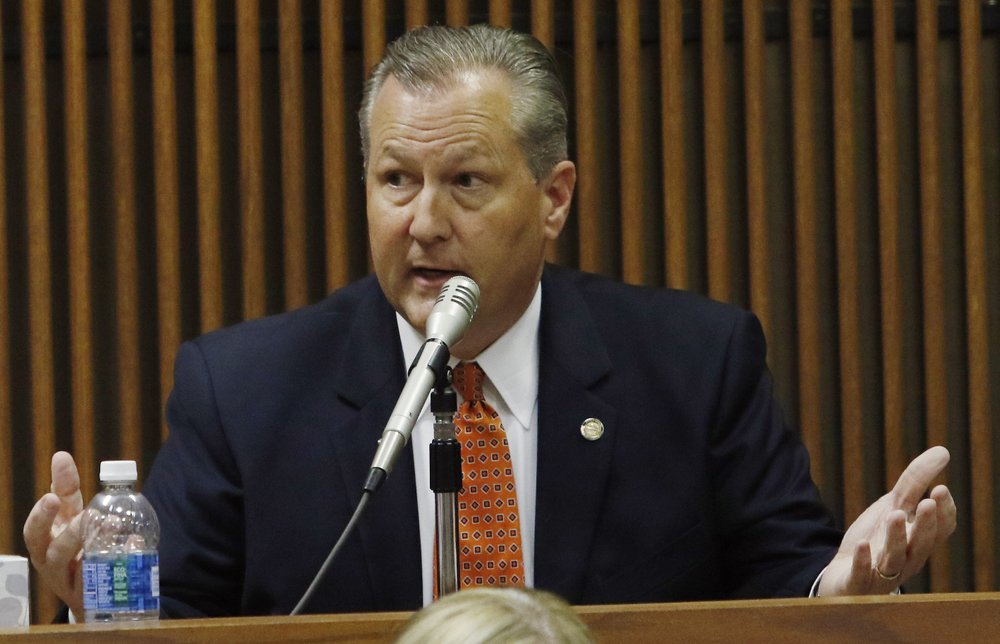
Former House Speaker Mike Hubbard in a Friday court filing apologized for his ethics conviction that he said hurt the state and his family as his attorney filed a request for his early release after serving one year of a 28-month sentence. Hubbard’s attorney argued his sentence of over two years behind bars is out of line with punishments handed down to other officials convicted of violating the state ethics law. In a letter to the judge, Hubbard wrote that “I recognize and admit my errors” and apologized to the people of the state and others. “My conviction has severely damaged and embarrassed me and my family, friends, former constituents, community, church, the legislature, and the state of Alabama. For this, I am severely sorry and respectfully ask forgiveness from everyone affected,” Hubbard wrote in the letter to Lee County Circuit Judge Jacob Walker. He wrote that it was embarrassing to be convicted of violating an ethics law he oversaw being drafted and approved by lawmakers. Whether a criminal defendant has accepted responsibility and expressed remorse is often a factor when a judge weighs a request for leniency. A jury in 2016 convicted Hubbard of violating the state ethics law, including using his public office for personal financial gain. Prosecutors accused Hubbard of leveraging his powerful public office to obtain clients and investments for his businesses, violating the prohibition against giving a “thing of value” to an elected official. His defense maintained the contracts were legitimate work and unrelated to his position as House speaker. In upholding the conviction this spring, justices noted that when contacting a company for one client, Hubbard “identified himself as a state legislator and as Speaker of the House of Representatives.” They also noted how one company executive wrote in an email that Hubbard could get the company, “in front of any speaker in the country regardless of party.” The Republican was one of the state’s most powerful politicians until the ethics conviction in a corruption case ended his political career. Hubbard, the architect of the GOP’s takeover of the Alabama Legislature in 2010, was a legislator from Auburn and former chairman of the Alabama Republican Party. He was elected House speaker soon after Republicans won control of both legislative chambers. Hubbard was automatically removed from office after his 2016 felony conviction. Hubbard was originally sentenced to 48 months behind bars, but that was reduced after some counts against him were overturned on appeal. His attorney argued the 28-month sentence is well “outside the overwhelming majority of the similarly-situated individuals” that have been convicted in state court of state ethics violations, and listed sentences of other elected officials convicted in state court. However, former Gov. Don Siegelman served six years in federal prison after being convicted in 2006 on charges that he sold a seat on a state regulatory board to HealthSouth founder Richard Scrushy in exchange for $500,000 in donations to Siegelman’s signature political issue — his 1999 campaign to establish a state lottery. Siegelman was convicted on a separate obstruction of justice charge that he tried to hide money he received from a lobbyist. Siegelman was released in 2017. He has regained his law license and says he plans to focus on criminal justice issues. Republished with the permission of the Associated Press.


